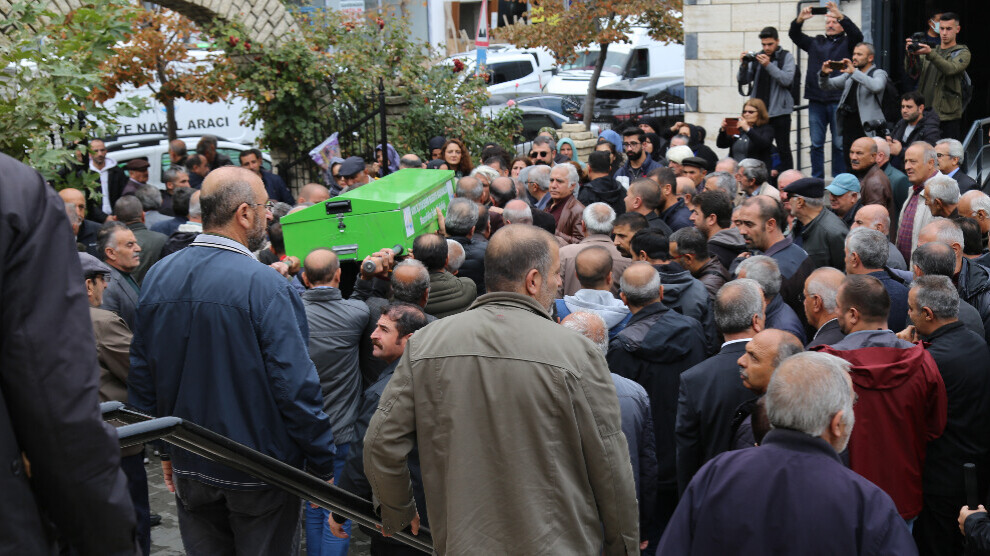Journalist Necmettin Salaz laid to rest in Van
The body of journalist Necmettin Salaz, who died in Southern Kurdistan, was transferred to his birthplace in Van province and buried.
The body of journalist Necmettin Salaz, who died in Southern Kurdistan, was transferred to his birthplace in Van province and buried.

Journalist Necmettin Salaz, who died on 14 October in a hospital in Sulaymaniyah, was buried in his birthplace in Van after the transfer of his body from the Kurdistan Region of Iraq to Turkish territory, which took longer than planned due to bureaucratic hurdles. The Kurdish journalist, who died at the age of 65 as a result of cirrhosis of the liver, had been living in Southern Kurdistan (Northern Iraq) for ten years after political persecution in Turkey.
The body was brought to the mortuary at Akköprü cemetery in the central Tuşba district on Wednesday morning and received by a large crowd, including many media representatives, including Serdar Altan, co-chair of the Dicle-Firat Journalists' Association (DFG), representatives of civil society organisations and HEDEP (Peoples’ Equality and Democracy Party) and DBP (Democratic Regions Party). After a prayer in the Boyalar Mosque, the coffin was carried to the grave. As the cemetery was cordoned off by the police, only family members were admitted to the funeral.
Necmettin Salaz worked for the free Kurdish media for forty years. He was born in Van in 1958 and graduated as a teacher from the local education institute in 1979. He had been close to leftist Kurdish movements since the mid-1970s and was arrested several times. After the military coup of 1980, he spent almost five years in the notorious torture prison in Amed (tr. Diyarbakir). After that, he was banned from public service for life and could no longer work as a teacher. Before the Kurdish party HADEP was banned, he was an advisor in the municipality of Van.
Salaz hosted the programme Başûr Gündemi (Southern Kurdistan Agenda) on Medya Haber TV and was the author of numerous articles and books on Kurdistan. Due to his illness, he had been receiving medical treatment for a long time.